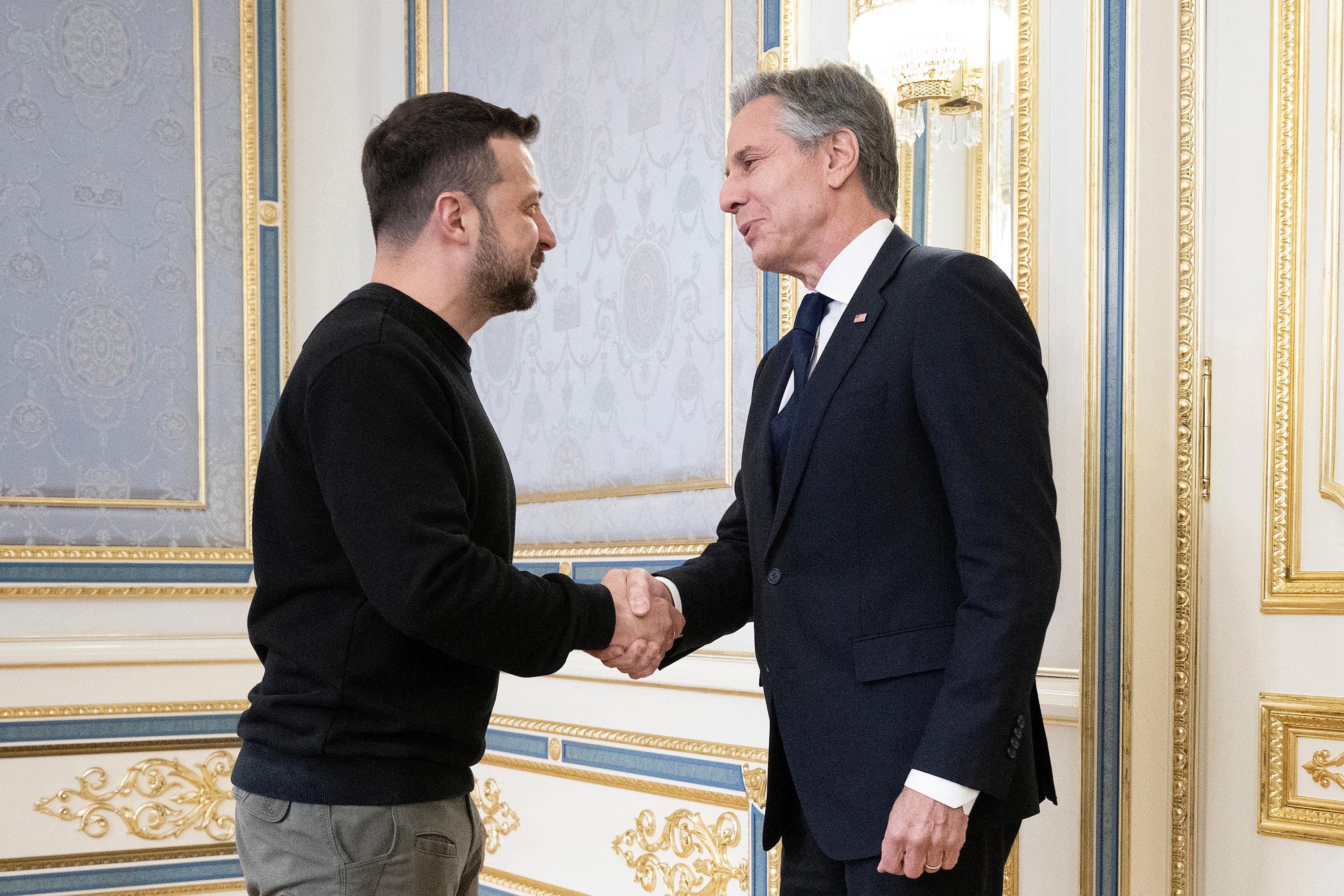
US Secretary of State Antony Blinken arrived in Kyiv on Tuesday, marking the first visit of a Biden administration official to Ukraine following the long-delayed passage of US supplemental funding to the war-torn country, the State Department announced.
Coming amid Ukrainian setbacks on the battlefield, Blinken intends to send a “strong signal of reassurance to the Ukrainians,” the official said.
“The secretary’s mission here is really to talk about how our supplemental assistance is going to be executed in a fashion that helps shore up their defenses, enable them to increasingly take back the initiative on the battlefield looking forward,” the official said.
Blinken will also discuss “the other steps that we’re taking to provide long-term assurance and commitment on the security front to the Ukrainians, including our bilateral security agreement,” the official added.
During his fourth visit to Ukraine since the 2022 Russian invasion, Blinken is also scheduled to meet with civil society and private sector partners as well as Ukrainian President Volodymyr Zelensky. US officials acknowledge that the slowdown in US support, due to congressional infighting, has exacerbated a challenging situation for Ukraine.